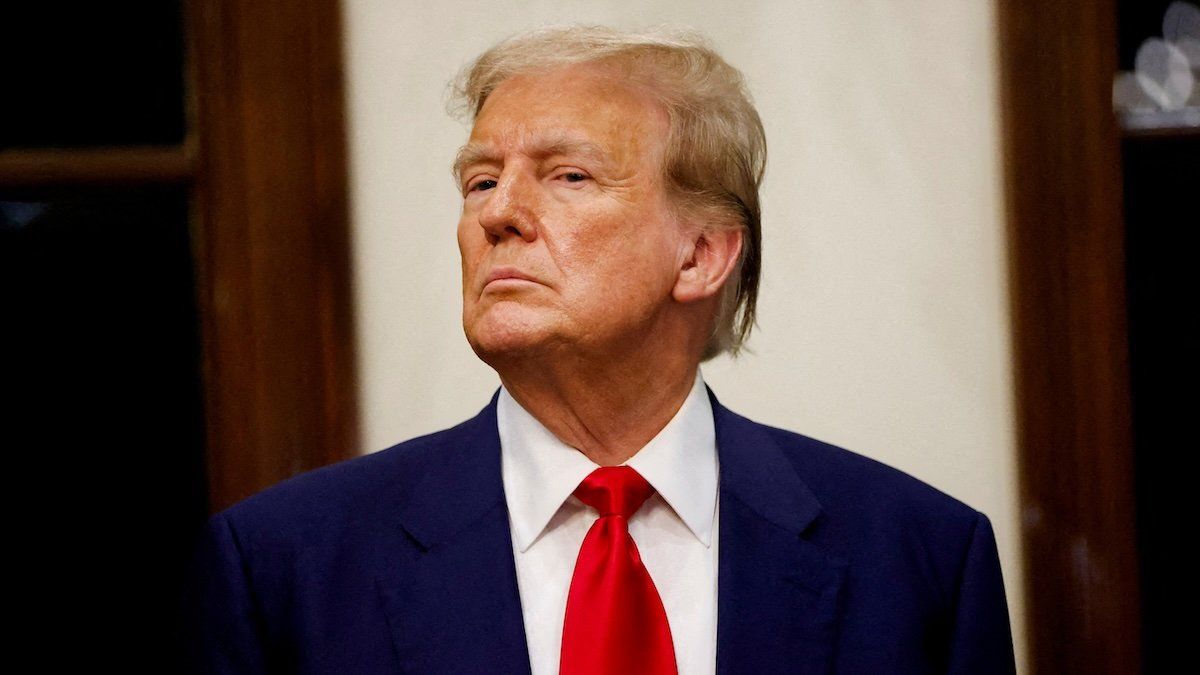Alongside dealing with inflation, war, AI and hyper-polarizing politics — a full cart of problems already — every US ally and opponent are also busily drawing up their Preparing For Trump (PFT) playbook. What happens if Trump 2.0 cancels trade deals? What if he pulls out of NATO? Will he use nuclear bombs? Will US isolationism cede global influence to China and Russia? Could reliable, prosperous, long-standing alliances and treaties… collapse?
This week, a colleague and I had an interesting meeting with a senior Canadian minister and PFT was the main topic. Of all countries, Canada has one of the most successful past playbooks, based on the successful renegotiation of the NAFTA deal in Donald Trump’s first term. Remember that gilded time, in 2017, when Justin Trudeau had a hot political minute playing the role of “Trump Whisperer”? His Team Canada, backed by another Trump Whisperer — former Prime Minister Brian Mulroney, who sadly just passed away — poured their maple syrup charms up and down the Beltway and it worked. But here’s the question: Is that playbook still relevant?
The short answer? No.
First off, the Trudeau and Trump bromance ended in ashes. By 2018, at the G7 summit in Canada, Trump was calling Trudeau “very dishonest and weak.” A year later, Trump said his northern neighbor was “two faced,” so let’s just say there were no invitations to go golfing.
Trump carries a grudge the way Thor wields a hammer — so expect carnage if Trudeau is still in power when the new trade deal is renegotiated in 2026.
That leaves the other key PFT route: The Logic of Mutually Beneficial Trade. The strategy, as the minister explained to me, is to play the economic hits, just like last time.
- Canada is the US’s largest trading partner: US exports to Canada surpassed $307 Billion in 2021, while imports from Canada were $357.2 billion.
- The US imports more oil from Canada than anywhere else.
- The largest market for key swing states like Michigan? Canada.
- Critical minerals and the AI future: Canada can weaken China’s dominance of the critical mineral supply chain with reliable sources of lithium, nickel, graphite and rare earth minerals.
And on it goes. In other words, these are powerful, rational arguments in favor of open trade and against protectionism and Buy America that have the benefit of truth. On a state level these arguments are still effective, and might still be convincing to members of Congress. But as my colleague pointed out to the minister — what if rational arguments like these don’t work for the Trump administration?
The first Trump administration was, like all presidencies, a mixture of political ideology and political policy, with the president surrounded by advisors who acted as guardrails to his impulsive aggressions. They kept the alliances intact. That’s no longer the case. Those internal guards have been purged in favor of hardened partisans running a permanent war room campaign that has a strong animating force: Revenge. Just this past week Trump’s own Truth Social media channel raised billions of dollars, feeding a media ecosystem that insulates him and his team from any uncomfortable intrusions of facts that might upend his self-reinforcing political narrative. Political appetites will devour logical policymaking. So, what is the strategy in that scenario?
In 2024, PFT means trying to find a way to give Trump something that he can publicly claim as a “win,” without looking weak to your own voters.
And what is that?
Jobs.
But trying to simultaneously create jobs in America without selling out your own industries is a political magic trick most foreign leaders have yet to master, and one they may not want to. That is the challenge to the Team Canada folks who are crafting the PFT and to every country doing the same thing.
The only bright side? They had practice over the last three years. President Joe Biden has proven equally protectionist on many industries and the same arguments apply to him, only it’s much more behind closed doors, which makes the negotiations easier.
Maybe the PFT industry is why Trump supporters say he’s so effective. Before he’s even in power, he already has the upper hand. His threat of over-the-top retaliations has effectively put the US in a stronger negotiating position on trade, security and diplomacy — and he’s not yet in office. His plausible threat to collapse the status quo is his most effective negotiating tool. It may make for less trustworthy alliances, weaker international treaties and a more dangerous, less prosperous world, but it fulfills the number one Trump promise to his supporters: America First.



















